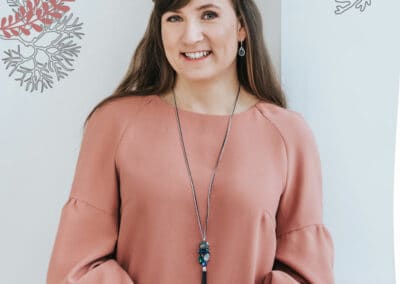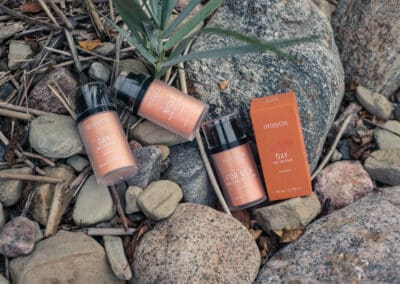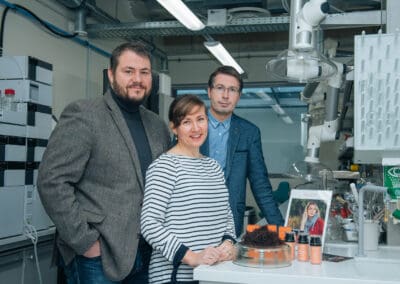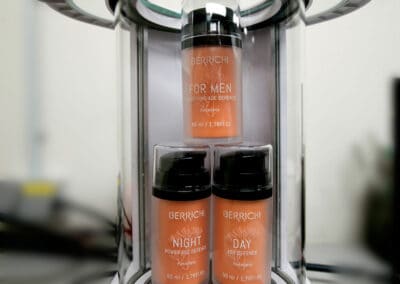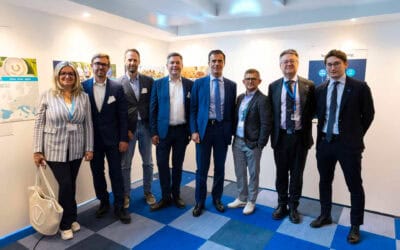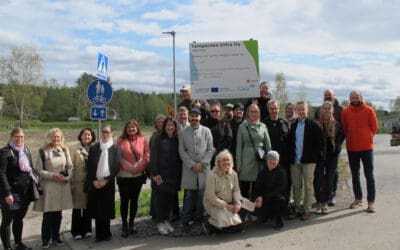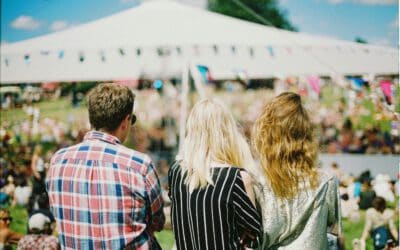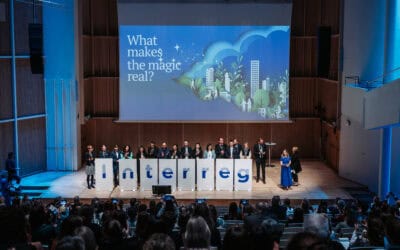Red algae growing in the Baltic Sea are the special feature of facial creams in the Estonian cosmetics line Berrichi. But what’s more, it is the first product developed with the support of the Interreg-funded expert network ALLIANCE. The ALLIANCE is a European cooperation project and a flagship of the EU Strategy of the Baltic Sea Region. It brings together blue biotechnology actors from around the Baltic Sea to create new products and services.
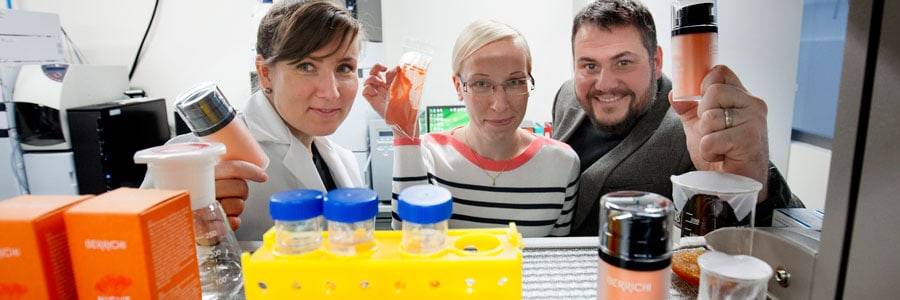
ALLIANCE entrepreneurs Berit (left) and Janno (right) Joosep in the laboratory of Tallinn University with chemist Marju Robal showing their new, algae based facial cream | Photo: Terje Atonen
Cosmetics from algae
The idea for Berrichi originates from Berit Joosep from Estonia. Berit struggled with skin problems, had allergies and suffered from dry skin and inflammations. This forced her to look for natural alternatives to over-the-counter skin care products. Her search for a compatible skin care product developed into a comprehensive quest to find the best of natural beauty traditions from all over the world. Berit Joosep believes that “clean and natural is the best for the skin”. And the Baltic Sea has untapped potential for natural products. The Estonian entrepreneur discovered the power of algae and super oils and needed to do research in order to develop a marketable product.
A cooperation network brings product development forward
Together with her husband Janno Joosep, who runs the company Furcella OÜ, Berit Joosep got in touch with the ALLIANCE network. ALLIANCE matches blue biotechnology experts with businesses who need a specific expertise. Not every Baltic Sea region country can provide all the resources and expertise necessary to complete the journey from an idea to a marketable product. However, the required service is very often available in a nearby country. Initially, the entrepreneurial couple cooperated with chemists from Tallinn University. Then the “blue detective”, Mariann Nõlvak from Tartu Biotechnology Park, spotted them and invited Furcella to join the ALLIANCE and its mentoring programme for start-ups. The ALLIANCE helped Furcella and made direct connections to new suppliers of material for the cosmetics, such as organic oils and the vitamin Retinol A. The suppliers based in Germany fulfilled Furcella’s high expectations concerning sustainable production and now help to keep production going.
More bio based products from the Baltic Sea
Including Furcella, the ALLIANCE’s portfolio includes 26 organisations from eight countries – from start-ups to fully-fledged businesses. They are united in their shared aim of providing new marine bio-based products and services “made in the Baltic Sea region”.
An algae protein-pigment for medical use
The Estonian organisation Vetik is developing a competitive process for large-scale extraction of a valuable natural ingredient of red algae, R-phycoerythrin (R-PE). This protein-pigment is e.g. used to label antibodies in medical examinations. ALLIANCE partners help the organisation access scientific papers, provide testing for seaweed drying and crushing, and offer pigment extraction techniques.
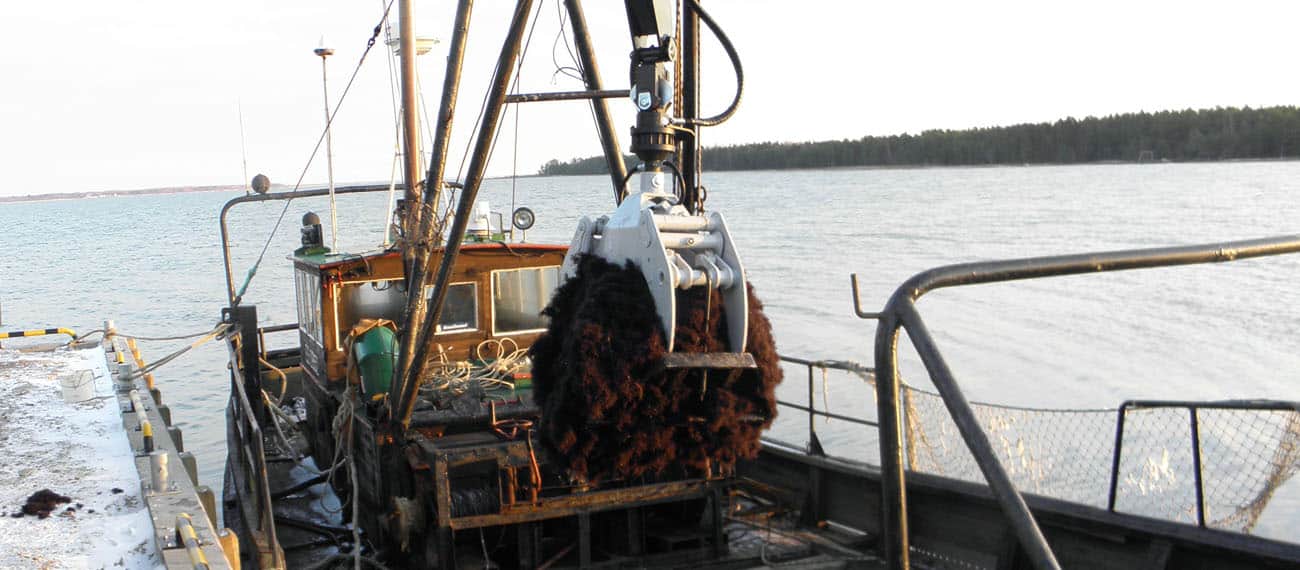
A fisherboat out on the sea to harvest algae | ALLIANCE project @ Interreg Baltic Sea Region | photo: Kärt Lehis
Microalgae to create shimmering colours for cosmetics
A Dutch company, Hoekmine, is screening microalgae from the Baltic Sea to create new iridescent colours, i.e. colours which shimmer like soap bubbles. One of the leading cosmetics manufacturers worldwide expressed interests in this colour concept. The ALLIANCE network supports the company with access to algae samples from the Baltic Sea and advice on commercial developments.
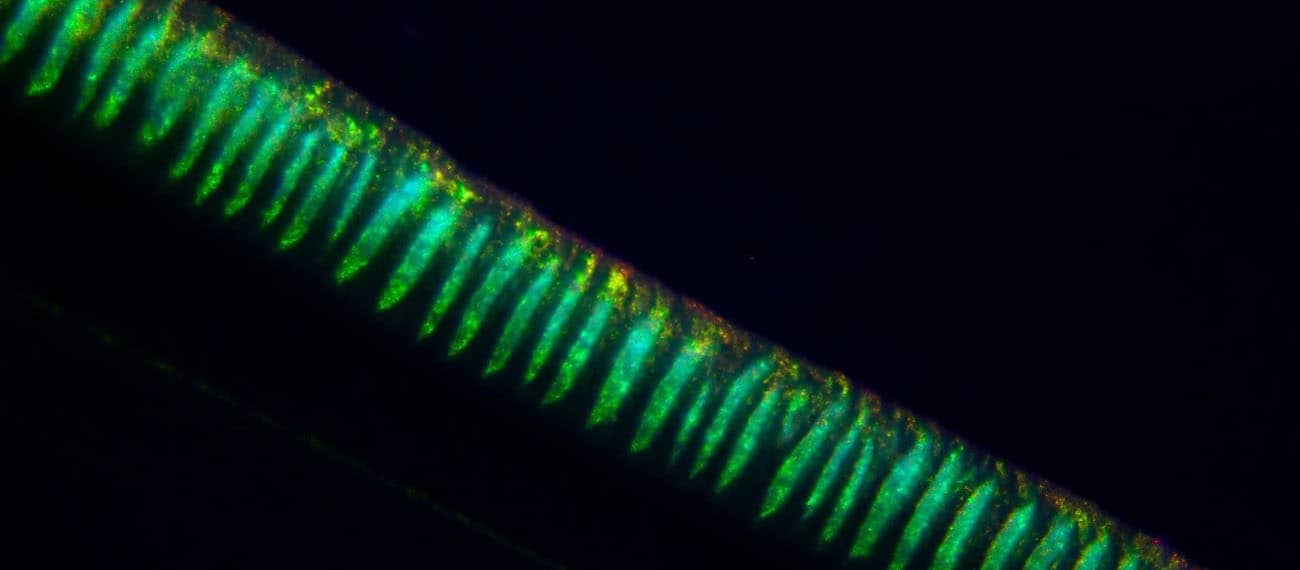
Microalgae through the microscope| ALLIANCE project @ Interreg Baltic Sea Region | photo: C. Ingham
Better drying technique for seaweed
SFTec, a spin-off company from the University of Oulu, Finland, recently developed a technique to dry materials in metallurgical industries more cost efficiently. With the help of Swedish and Finnish partners from the ALLIANCE the company is now testing and evaluating the potential of their technology for drying seaweeds and other biomass from the sea.
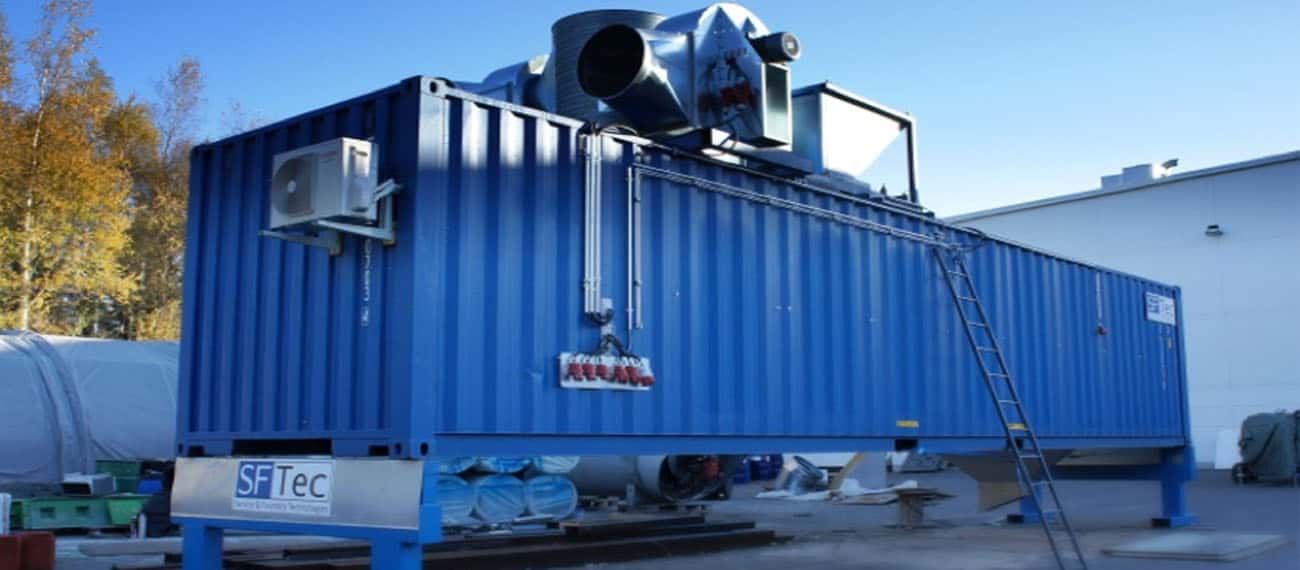
The drying system | ALLIANCE project @ Interreg Baltic Sea Region | photo: SFTec Oy
“The ALLIANCE network is familiar with the structure and specific disciplines of the blue biotechnology sector and can respond to its demands – it offers help to companies that want to promote sustainable use of Baltic Sea resources,” explains Angela Schultz-Zehden of the Submariner Network for Blue Growth EEIG. Angela who is part of the management team of ALLIANCE highlights that such links make each of the SMEs more competitive internationally and allow them to go beyond their own domestic markets.
Baltic Sea macro-region moving forward
The company Furcella and the blue biotechnology network ALLIANCE demonstrate in the Baltic Sea region how Interreg fosters European integration for a more competitive Europe. The network was set-up with EUR 2.65 million of support from the European Union. And competitiveness is all about innovation. Because of its promising approach to enhancing innovation in marine biotechnology all across the Baltic Sea region, the ALLIANCE is a flagship of the EU Strategy for the Baltic Sea Region. In the future, the ALLIANCE is planning to streamline the overall service offer. And Berit and Janno Joosep are also continuing to work with ALLIANCE. Currently, their products are being certified for their organic standard by a company which they located via ALLIANCE members. As a next step, they are trying to find a “blue” solution for the packaging of their algae-based natural creams, for example tubes or boxes produced from algae.
Story compiled by Ute Kolley & Stefanie Maack (Interreg Baltic Sea Region MA/JS) with support of Kamila Zalesiak (SUBMARINER Network for Blue Growth).



